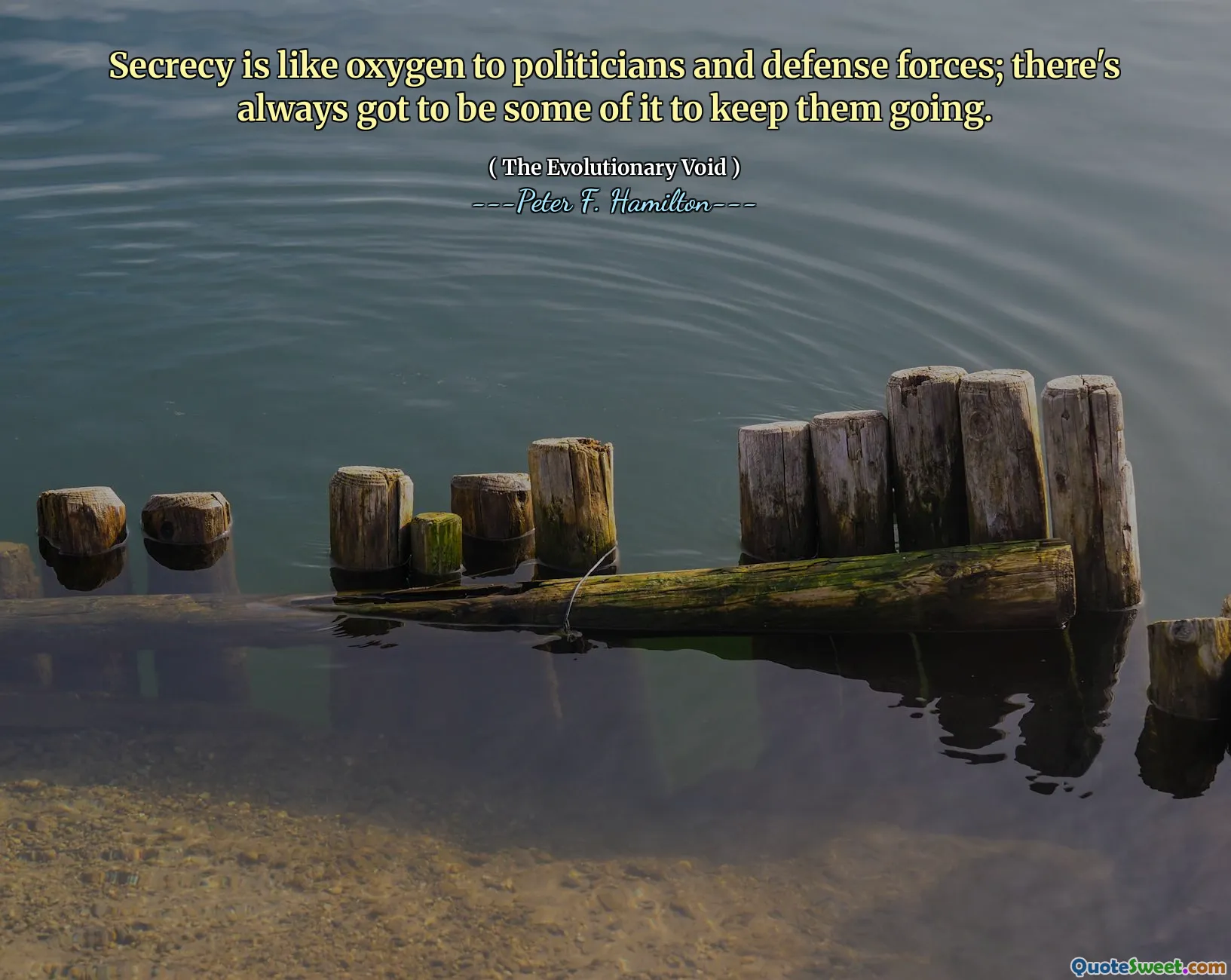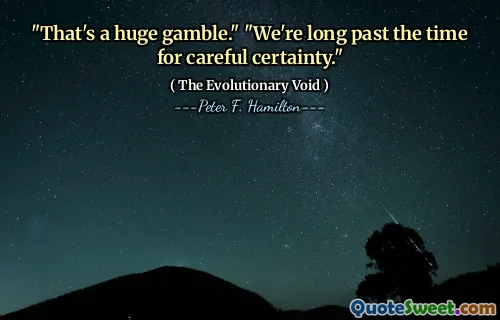
Secrecy is like oxygen to politicians and defense forces; there's always got to be some of it to keep them going.
This quote from Peter F. Hamilton's "The Evolutionary Void" encapsulates a profound truth about the nature of secrecy within political and military institutions. It metaphorically compares secrecy to oxygen—a vital, sustaining element without which these groups cannot effectively operate. In the complex world of governance and defense, transparency is often curtailed in favor of classified information and strategic concealment. The constant need for secrecy underscores the underlying challenges and pressures these entities face. It serves to protect sensitive information from external threats, maintain control, and sustain authority.
However, this comparison also prompts deeper contemplation about the trade-offs involved. While some secrecy is indeed necessary to ensure security and the smooth functioning of state mechanisms, an excess can breed mistrust, hinder accountability, and potentially veil unethical behavior. The delicate balance between openness and confidentiality can influence public perception, governance legitimacy, and ultimately, the health of a democracy. Hamilton’s insight challenges readers to reflect on the implications of secrecy: when does it cross the line from protection to manipulation? How can societies hold leaders accountable when vital information is cloaked in secrecy?
Overall, the quote highlights the paradoxical relationship between transparency and secrecy in maintaining political and defense systems, provoking ongoing debate about where the balance should lie in safeguarding both national interests and democratic principles.







